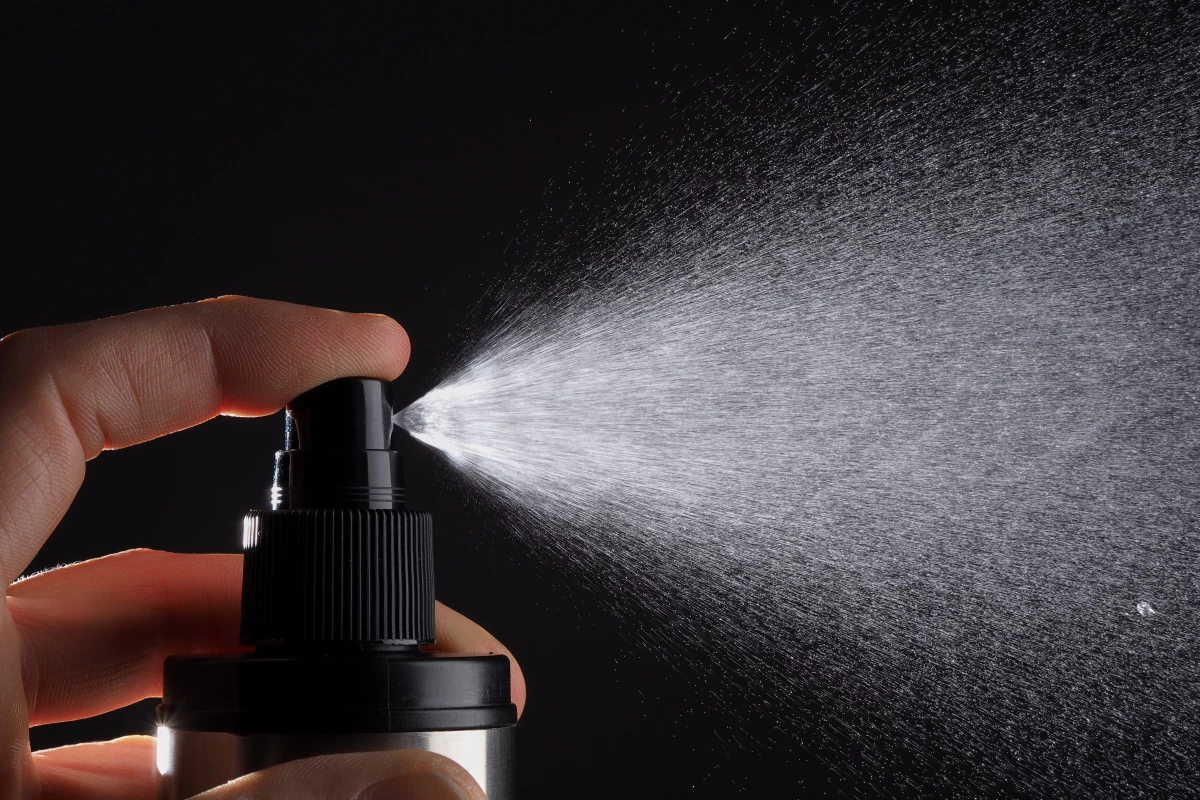An oral spray vaccine against recurrent urinary tract infections (UTIs) prevented the condition from returning for up to nine years in more than half of study participants, new research has shown. It offers a safe, effective method of UTI prevention and an alternative to antibiotic treatment.
UTIs are a pain – literally, a burning pain. Other symptoms, such as a strong urge to urinate that doesn’t go away, frequent urination, and a feeling of fullness even after urinating, are bad enough but made worse when the infection returns months later … and keeps returning.
Recurrent UTIs – defined as three or more UTIs in 12 months – occur in 20% to 30% of cases. Women are affected more than men simply because of their anatomy, with 80-85% of infections caused by the bacteria Escherichia coli. Klebsiella pneumoniae, Proteus vulgaris, and Enterococcus faecalis are other culprits. For this reason, antibiotics are often the first-line treatment. However, with the rise in antibiotic resistance, there’s a pressing need to find an effective alternative.
That’s where MV140, a new vaccine to treat recurrent UTIs in women and men, comes in. Sold as Uromune, the vaccine is made from inactivated versions of the four bugs listed above, stimulating the immune system to generate long-term protection against UTIs. And, best of all, it’s not an injection; it’s a pineapple-flavored spray that’s delivered under the tongue each day for three months. A recent study led by clinicians at the UK’s Royal Berkshire Hospital has demonstrated that it can be effective for up to nine years.
“Before having the vaccine, all our participants suffered from recurrent UTIs, and for many women, these can be difficult to treat,” said Bob Yang, consultant urologist at the Royal Berkshire NHS Foundation Trust who co-led the research. “Nine years after first receiving this new UTI vaccine, around half of the participants remained infection-free. Overall, this vaccine is safe in the long-term and our participants reported having fewer UTIs that were less severe. Many of those who did get a UTI told us that simply drinking plenty of water was enough to treat it.”

The current study followed up on the first trial to use Uromune to treat women with recurrent UTIs, the results of which were published in the British Journal of Urology (BJU) International. In that study, of the 75 women who completed treatment, 78% had no subsequent UTIs in the 12-month follow-up period. Now, nine years later, a follow-up study, including 72 women and 17 men, investigated the long-term effectiveness of the treatment.
Forty-eight (54%) participants remained completely free of UTIs during the nine-year follow-up period. The average time participants remained UTI-free was 56.7 months for women and 44.3 months for men, which is more than 4.5 years and more than 3.5 years, respectively. Some 40% of participants reported having repeat vaccine doses one or two years after the initial treatment.
“This is a very easy vaccine to administer and could be given by GPs as a three-month course,” Yang said. “Many of our participants told us that having the vaccine restored their quality of life. While we’re yet to look at the effect of this vaccine in different patient groups, this follow-up data suggests it could be a game changer for UTI prevention if it’s offered widely, reducing the need for antibiotic treatments.”
Uromune is available under special access programs in 26 countries, including Australia, Canada, New Zealand, and the UK. A 2023 review of five studies into the effectiveness of MV140/Uromune found that it safely prevented or reduced the risk of UTIs in women, reduced antibiotic use, and reduced healthcare expenditure by 50% per patient per year.
The findings were presented at the 39th Annual European Association of Urology (EAU) Congress in Paris in early April. The researchers expect the study's full results to be published in a peer-reviewed journal by the end of the year.






